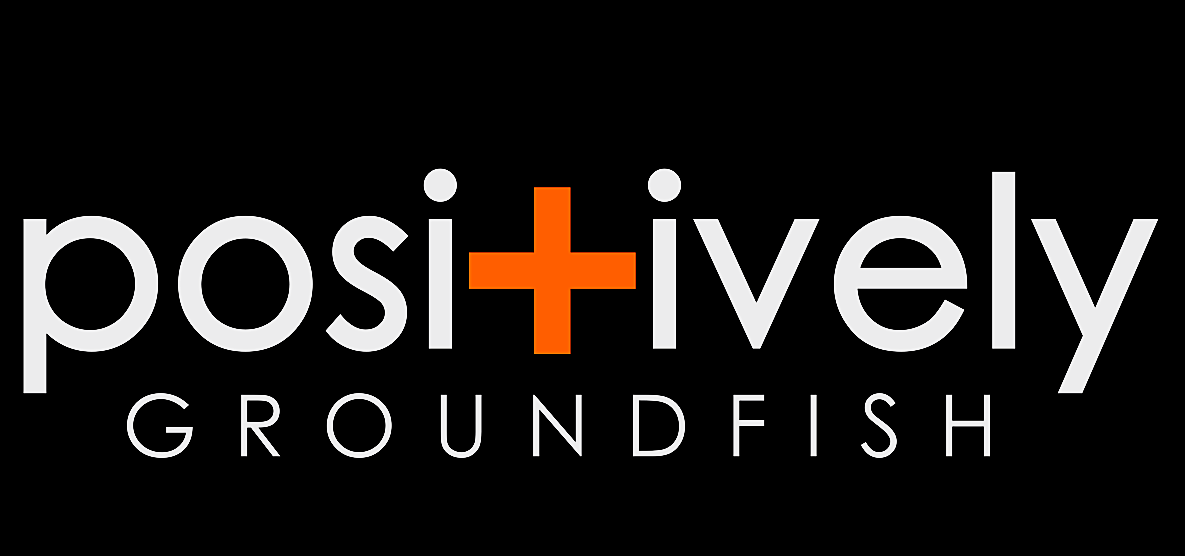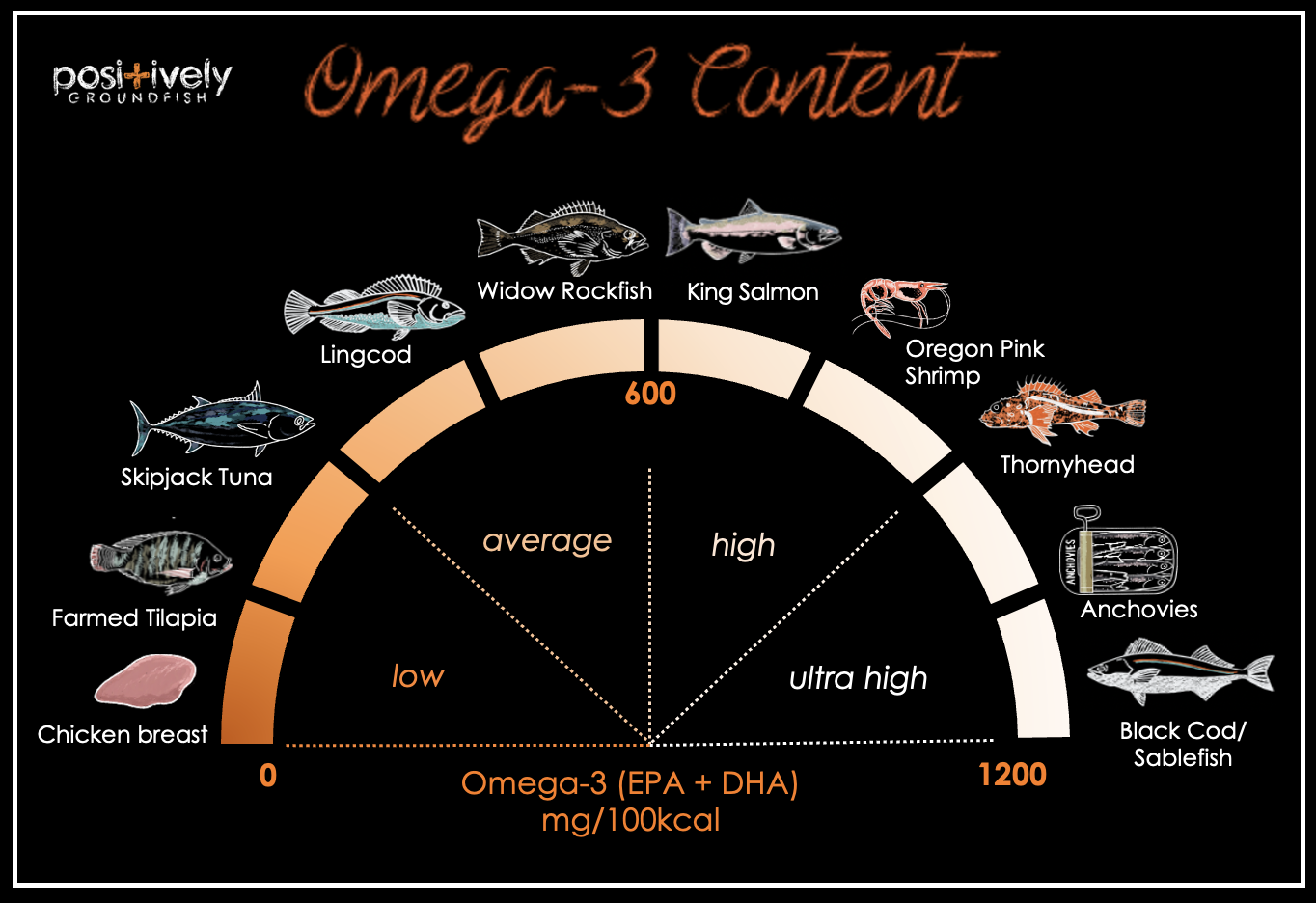WHY AGING BRAINS NEED SEAFOOD
Authored by: Shadae Zamyad, Nutritionist
When we think about aging well, our minds often drift to wrinkle creams, hair dyes, and exercise routines - the visible markers of growing older. But perhaps the most crucial aspect of healthy aging isn't what we see in the mirror, but rather what's happening inside our brains. While we spend billions annually on products promising to preserve our youthful appearance, cognitive health - our ability to think, remember, and reason - has a far greater impact on our quality of life as we age. With Alzheimer's disease currently affecting over 7 million people in the US and expected to quadruple by 2050, brain health isn't just a concern for our later years. Yet cognitive decline isn't inevitable, and growing research suggests that what we eat plays a vital role in maintaining our mental sharpness. Among the most promising nutritional allies for our aging brains? Seafood, rich in Omega-3 fatty acids that serve as essential building blocks for brain cells and help reduce the inflammation and plaque formation associated with cognitive decline.
Omega-3 - the Brain’s Building Blocks
As we go about our daily lives, we often take our cognitive abilities for granted. We rely on our memory to recall important information, our learning capacity to acquire new skills, and our mental sharpness to navigate complex situations. However, as we age, many of us become increasingly concerned about maintaining these vital brain functions. Our brain's health depends heavily on its physical structure and composition. Like any organ, it requires specific nutrients to function optimally and maintain its integrity over time. Among these essential nutrients, one group stands out as particularly critical: Omega-3 fatty acids, which serve as building blocks for brain cell membranes and support neural communication. One type of Omega-3, DHA (docosahexaenoic acid), is uniquely concentrated in brain tissue, making up about 30% of the structural fats in our brain's gray matter. Our brains are literally made of Omega-3s!
A review published in Frontiers in Aging Neuroscience explored the mechanisms behind DHA's neuroprotective properties. It suggested that DHA protects the brain by reducing inflammation, countering oxidative stress, and decreasing the accumulation of toxic proteins in the brain – all key factors in the development of neurodegenerative diseases (Dyall et al., 2015). EPA (eicosapentaenoic acid), on the other hand, helps regulate inflammation within the body and within brain, creating a healthy environment for cognitive processes to thrive.
Omega-3s are called “essential” fatty acids because they are fats that cannot be made by our body but must be consumed by eating Omega-3 rich foods. What sets fish apart from other animal proteins such as red meat or poultry, is its high concentration of Omega-3 fatty acids, specifically DHA (docosahexaenoic acid) and EPA. While you might enjoy a perfectly cooked steak or a delicious chicken dinner, these meals aren't doing much for your brain in terms of Omega-3s. Fish, however, is a powerhouse when it comes to these good fats, making it a smart choice for all of us looking to give their brain a boost and take steps to age well.
What are Omega-3s and their benefits?
How Omega-3s promote Brain Health
Omega-3’s role for Cognitive Function
A study published in the Journal of Nutrition Health and Aging, examined the link between fish intake and cognitive function in a large group of older Chinese adults. The researchers discovered that participants who consumed fish more frequently scored better on cognitive tests and experienced a slower rate of cognitive decline over time (Qin et al., 2014). This study highlights the potential of regular fish consumption to support cognitive health and slow down age-related cognitive changes, which can have a profound impact on our quality of life as we grow older.
In addition to these studies, a comprehensive review published in Progress in Lipid Research explored the specific effects of DHA supplementation on memory and learning in older adults. The review concluded that DHA has the potential to enhance memory and learnings providing further evidence for the importance of this nutrient in maintaining brain health (Dyall et al., 2015). The author suggests that incorporating DHA-rich fish or DHA supplements into our diets could be a simple yet effective way to support our memory and learning abilities as we age.
These studies, along with many other, paint a compelling picture of the role that DHA and fish consumption can play in reducing age-related cognitive decline and supporting overall brain health. By making conscious choices to include more Omega-3-rich fish in our meals, we can take a proactive step towards preserving our cognitive abilities and ensuring that we can continue to enjoy a high quality of life well into our later years.
Reducing your Risk of Neurodegenerative Diseases
As we grow older, the fear of neurodegenerative diseases like Alzheimer's and Parkinson's can be a constant concern, and with good reason. In the United States alone, more than 6.7 million Americans are living with Alzheimer's disease, while nearly one million people have Parkinson's disease. These numbers are expected to rise significantly as our population ages, with experts projecting that Alzheimer's cases could double by 2050.
While some people may inherit genes that make them more likely to develop these conditions, research increasingly shows that our lifestyle choices throughout life play a crucial role. Think of it like a garden: our genes are like the soil we inherit, but our daily choices about diet, exercise, and other healthy habits are the care we give to our garden. Even with challenging soil conditions, proper care and nourishment can help create a thriving garden. Diet, exercise, sleep quality, stress management, and staying mentally active all work together to support brain health as we age. Among these factors, nutrition stands out as one of the most powerful tools we have. Fortunately, research suggests that simply incorporating more Omega-3 rich fish into our diets could be an effective strategy for promoting brain protection and reducing the risk of these debilitating conditions. This nutritional approach, when adopted early and maintained consistently, may help protect our brains even for those with a family history of cognitive decline.
The potential of Omega-3, specifically DHA, to reduce age-related cognitive decline has been highlighted in several peer-reviewed studies. One such study, published in the American Journal of Clinical Nutrition, investigated the relationship between fish intake and the risk of Alzheimer's disease. The researchers found that participants who consumed fish regularly had a remarkable 60% lower risk of developing Alzheimer's compared to those who rarely or never ate fish. This finding suggests that the neuroprotective properties of fish could play a significant role in safeguarding our brains against this devastating disease (Zhang et al. 2016).
Another study published in the Journal Neurology followed a group of over 800 older adult in the US over time to investigate the relationship between DHA levels in the blood and the risk of developing Alzheimer's disease. The researchers found that participants with the highest levels of DHA had a remarkably 47% lower risk of developing this debilitating form of cognitive decline compared to those with the lowest levels (Schaefer et al. 2006). This finding suggests that maintaining adequate DHA levels through fish consumption could be a powerful strategy for protecting our brains as we age.
Another study (Gao et al. 2007) published in the European Journal of Neurology, examined the link between fish consumption and the risk of Parkinson's disease. The researchers discovered that participants who ate fish regularly had a 43% lower risk of developing Parkinson's compared to those who never consumed fish. This study highlights the potential of fish to provide neuroprotection and reduce the risk of another major neurodegenerative disorder, offering hope for those seeking to maintain their cognitive health as they age (Gao et al. 2007).
Fish vs. Other Animal Proteins: A Unique Brain-Boosting Profile
Try this high Omega-3 Black Cod Power Bowl Recipe
When it comes to nourishing our brains and maintaining cognitive function, fish stands out among other animal proteins. While poultry and red meat provide essential nutrients for overall health, they lack the specific brain-boosting compounds found abundantly in fish. Fish is an excellent source of DHA and EPA, the two essential Omega-3 fats that play crucial roles in brain health. These powerful nutrients are found in high concentrations in seafood but are largely absent in other animal proteins like chicken and conventionally raised beef.
The scientific evidence supporting the cognitive benefits of fish consumption is compelling. In 2018, a group of British scientists conducted a comprehensive review comparing the impact of fish consumption on brain health to that of other animal proteins. And their findings were clear: fish consumption was associated with enhanced neuroprotection and a reduced risk of age-related cognitive decline, setting it apart from poultry and red meat. Further research by British clinical nutritionists (Bakre et al. 2018) investigated the relationship between fish intake and cognitive function in older adults. The study revealed that regular fish consumption was linked to better cognitive performance and a slower rate of cognitive decline compared to diets primarily consisting of other animal proteins.
Great Local Seafood Options for Omega-3
For a more comprehensive list of animal proteins’ Omega-3 levels, go to >>>
When it comes to maximizing the brain-boosting benefits of seafood, not all fish are created equal. While most seafood contains some amount of Omega-3 fatty acids, there are some species that have higher amounts of Omega-3s than others. And here on the West Coast we have some outstanding local seafood options with exceptional levels of Omega-3s.
One such local species, Black Cod (also known as Sablefish or Butterfish) is the absolute King of Omega-3. This succulent species contains an astonishing 1792 mg of Omega-3s (EPA and DHA) per 100g of raw fillet. For comparison, that is about twice as much as wild king salmon. That means, if you eat one 6-ounce (170mg) portion of Black Cod, you get over 3,040 mg of EPA and DHA – that’s equivalent to 6-8 fish oil capsules. It’s buttery and flakey, it’s a sustainably managed fishery, and it's nature's secret weapon for supercharging your brain health!
Other local species like Thornyhead, Oregon Pink Shrimp, Oysters, Salmon or Widow Rockfish are also Omega-3 champions, packing a serious nutritional punch that your brain will thank you for. All of these species are wild-caught, sustainably managed, ensuring that you're getting the purest, most natural source of brain-nourishing nutrients!
Fish is an exceptional source of Omega-3 fatty acids (DHA and EPA) that offer unrivaled benefits for brain health and cognitive function throughout our lives. The scientifically proven neuroprotective, mood-enhancing, and cognition-boosting properties of fish set it apart from other animal proteins, making it a crucial component of a brain-healthy diet. By regularly incorporating Omega-3-rich fish into our meals, we invest in the long-term resilience and vitality of our minds, from supporting healthy brain development in early life to reducing the risk of age-related cognitive decline. Embracing the brain-boosting powers of fish empowers us to age gracefully, maintain mental acuity, and make the most of every moment life has to offer.
CONTINUE EXPLORING:
Common Questions
-
Nutrient-dense foods that provide antioxidants, B vitamins, and healthy fats work together to protect cognitive function and promote mental clarity. Fatty fish are among the best foods for brain health thanks to their high levels of Omega-3 fatty acids—particularly DHA and EPA. These Omega-3s are the building blocks of neurons and brain matter, and they keep the blood vessels healthy. These essential fats (called “essential” because you can only get it from food) support memory, reduce inflammation, and help maintain the brain’s structure. High levels of Omega-3 fatty acids are also found in foods such as walnuts, flaxseeds, chia seeds, and certain vegetable oils, but nuts and seeds only provide these “healthy fats” our brains need in the form of ALA (alpha-linolenic acid), which our bodies cannot use as efficiently. Seafood - especially fatty fish - provides high amounts of Omega-3s plus it has high levels of other important brain nutrients such as B-12, Vitamin D, and Potassium, Selenium - in fact many species of wild-caught West coast fish have significantly higher concentration of these nutrients compared to spinach, broccoli or beans.
-
A Mediterranean-style diet—rich in fruits, vegetables, whole grains, legumes, nuts, olive oil, and fish—can support brain recovery by providing the essential carbohydrates, proteins, and healthy fats needed to build new neural pathways. Whole grains like wild or brown rice and gluten-free pasta (which may reduce inflammation in people with sensitivities) release energy gradually, helping to sustain energy levels throughout the day—especially important when managing fatigue. Extra-virgin olive oil, a key component of this diet, is a valuable source of monounsaturated fats, particularly oleic acid (Omega-9), which has been linked to reduced inflammation and improved cognitive function.
Fatty fish are especially beneficial due to their high levels of Omega-3 fatty acids, notably EPA and DHA. EPA helps reduce inflammation, while DHA plays a critical role in maintaining brain structure, limiting oxidative stress, and preventing the buildup of harmful proteins linked to neurodegeneration. Species like salmon, tuna, mackerel, anchovies, Black Cod/Sablefish and Thornyhead are excellent sources of these brain-supportive fats. Check out this comparison of Omega-3 levels among animal protein options to help you make more informed choices and improve your cognitive health.
-
A balanced diet rich in nutrients such as Omega-3 fatty acids, B Vitamins, Vitamin D, Selenium and Zinc are all beneficial to preventing and slowing Alzheimer’s disease. The MIND diet (Mediterranean-DASH Diet Intervention for Neurodegenerative Delay), a combination of the Mediterranean and DASH (Dietary Approaches to Stop Hypertension) diets, has been shown to slow cognitive decline (Source: Morris et al., 2015). This diet focuses on foods rich in antioxidants, and healthy fats (Omega-3s) and Vitamins A, C, D, and E, and emphasizes the importance of lean white fish as a valuable source of high-quality protein and brain supportive nutrients. Incorporating wild-caught West Coast species, such as Rockfish, adds Omega-3 fatty acids (particularly DHA), Vitamin D, and Selenium—nutrients known for their anti-inflammatory and neuro-protective effects.
-
Several foods can help someone with Parkinson’s disease to manage the symptoms, support brain health, and enhance the overall quality of life. Key among these are foods rich in Omega-3 fatty acids, such as fatty fish (e.g., salmon, sardines, Black Cod, mackerel, and oysters), as well as plant-based sources like flaxseeds and walnuts. One particularly important Omega-3, DHA (docosahexaenoic acid), makes up a significant portion of the structural fat in the brain, eyes, and nervous system. It is highly concentrated in the brain's gray matter, where most neural activity occurs, and is essential for maintaining flexible, functional cell membranes and supporting communication between neurons.
In addition to Omega-3s, a brain-supportive diet should include antioxidant-rich foods like berries, leafy greens, and cruciferous vegetables (e.g., broccoli, cauliflower), along with fiber-rich sources such as whole grains, fruits, vegetables, and legumes. While seafood is widely promoted for cardiovascular health, it is equally critical for brain health and cognitive function, especially in neurodegenerative conditions like Parkinson’s. Prioritizing wild-caught, Omega-3–rich fish like Black Cod, salmon, or sardines can be a simple but powerful dietary step toward protecting the brain.
Watch this short video to learn more.
References
Bakre AT, Chen R, Khutan R, Wei L, Smith T, Qin G, Danat IM, Zhou W, Schofield P, Clifford A, Wang J, Verma A, Zhang C, Ni J. Association between fish consumption and risk of dementia: a new study from China and a systematic literature review and meta-analysis. Public Health Nutr. 2018 Jul;21(10):1921-1932. doi: 10.1017/S136898001800037X. Epub 2018 Mar 19. PMID: 29551101; PMCID: PMC10260768.
Derbyshire E. Brain Health across the Lifespan: A Systematic Review on the Role of Omega-3 Fatty Acid Supplements. Nutrients. 2018 Aug 15;10(8):1094. doi: 10.3390/nu10081094. PMID: 30111738; PMCID: PMC6116096.
Dyall SC. Long-chain omega-3 fatty acids and the brain: a review of the independent and shared effects of EPA, DPA and DHA. Front Aging Neurosci. 2015 Apr 21;7:52. doi: 10.3389/fnagi.2015.00052. PMID: 25954194; PMCID: PMC4404917.
Gao X, Chen H, Fung TT, Logroscino G, Schwarzschild MA, Hu FB, Ascherio A. Prospective study of dietary pattern and risk of Parkinson disease. Am J Clin Nutr. 2007 Nov;86(5):1486-94. doi: 10.1093/ajcn/86.5.1486. PMID: 17991663; PMCID: PMC2225168.
Grosso G, Micek A, Marventano S, Castellano S, Mistretta A, Pajak A, Galvano F. Dietary n-3 PUFA, fish consumption and depression: A systematic review and meta-analysis of observational studies. J Affect Disord. 2016 Nov 15;205:269-281. doi: 10.1016/j.jad.2016.08.011. Epub 2016 Aug 16. PMID: 27544316.
Morris, M. C., Tangney, C. C., Wang, Y., Sacks, F. M., Barnes, L. L., Bennett, D. A., & Aggarwal, N. T. (2015). MIND diet slows cognitive decline with aging. Alzheimer's & Dementia, 11(9), 1015–1022. https://doi.org/10.1016/j.jalz.2015.04.011
Newton W, McManus A. Consumption of fish and Alzheimer's disease. J Nutr Health Aging. 2011 Aug;15(7):551-4552. doi: 10.1007/s12603-011-0065-x. PMID: 21808933.
Schaefer EJ, Bongard V, Beiser AS, Lamon-Fava S, Robins SJ, Au R, Tucker KL, Kyle DJ, Wilson PW, Wolf PA. Plasma phosphatidylcholine docosahexaenoic acid content and risk of dementia and Alzheimer disease: the Framingham Heart Study. Arch Neurol. 2006 Nov;63(11):1545-50. doi: 10.1001/archneur.63.11.1545. PMID: 17101822.
Qin, Bo et al. “Fish intake is associated with slower cognitive decline in Chinese older adults.” The Journal of Nutrition vol. 144,10 (2014): 1579-85. doi:10.3945/jn.114.193854.
Zhang Y, Chen J, Qiu J, Li Y, Wang J, Jiao J. Intakes of fish and polyunsaturated fatty acids and mild-to-severe cognitive impairment risks: a dose-response meta-analysis of 21 cohort studies. Am J Clin Nutr. 2016 Feb;103(2):330-40. doi: 10.3945/ajcn.115.124081. Epub 2015 Dec 30. PMID: 26718417.









